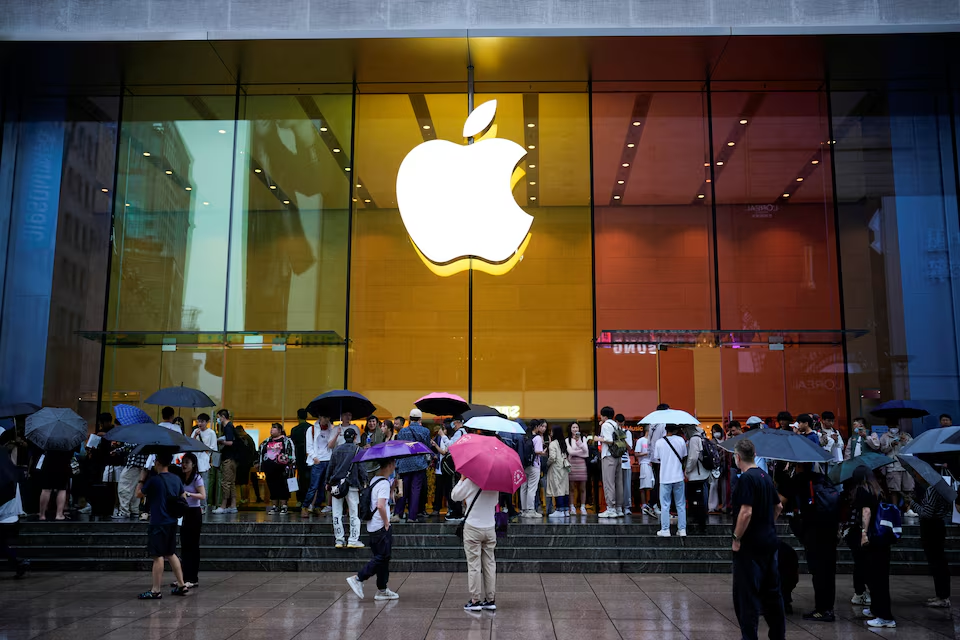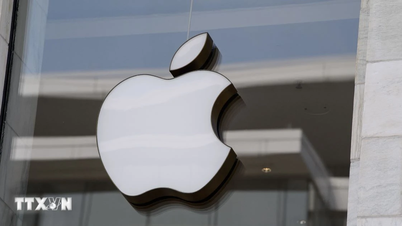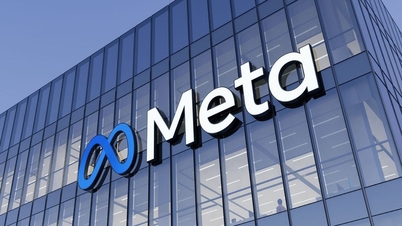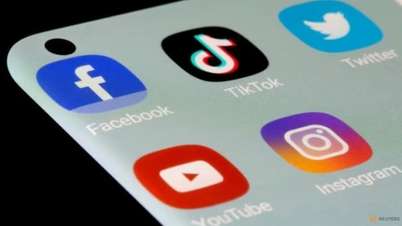“Buy an iPhone for your mom.”
This was Apple CEO Tim Cook's famous response at Vox 's Code 2022 conference when a reporter complained that her mother couldn't view a video she sent to her Android phone.
It was also cited and strongly criticized by Attorney General Merrick Garland at the press conference announcing the US Department of Justice lawsuit against Apple. The Biden administration and 16 states accused Apple of illegally abusing the iPhone's monopoly power in the smartphone market.
“Consumers should not have to pay higher prices because companies violate antitrust laws,” Attorney General Merrick Garland said in a statement. “Unchallenged, Apple will only continue to entrench its smartphone monopoly.”
The lawsuit against one of the world’s largest companies claims Apple is breaking the law by designing its app store and customer experience to exclude competitors. Apple has vowed to vigorously defend itself.

“This lawsuit threatens our identity and the principles that differentiate Apple products in fiercely competitive markets,” the company said.
If successful, the US could force Apple to loosen some of its hardware and software “closed garden” restrictions. The “bitten apple” would have to open the iPhone to alternative app stores and technologies like iMessage with Android.
In the lawsuit, the US Department of Justice highlighted five ways in which Apple disadvantages Americans.
Green bubble
With iMessage, Apple creates an enhanced messaging experience that allows people to interact seamlessly with one another, sending high-quality audio and video messages at lightning speeds, as long as the sender and receiver are both using iPhone.
When these messages reach Android users, they load slowly, lack important features like emojis, editing features, and end-to-end encryption. The “green bubbles” that distinguish Android users within iMessage and the low quality of messages sent between Android and iPhone are illegal, according to the Justice Department.
Attorney General Garland argues that Apple made it more difficult to text between iPhones and Androids, causing iPhone users to perceive rival smartphones as lower quality. Apple did this on purpose.
In 2023, the iPhone maker said it would adopt a new communication technology standard with Android but not open up all features. The green bubble still hasn't disappeared.
Apple Pay Exclusive
Apple has helped revolutionize the way we pay, integrating credit cards with the technology inside the iPhone for more secure and seamless payments. Apple also takes a cut of the transaction fees.
However, citing security reasons, Apple does not allow third-party apps to access the chip that allows the iPhone to make mobile payments. It could also tie customers to the iPhone, according to the lawsuit.
“Apple deprives users of the benefits and innovations that third-party wallets provide,” the lawsuit says . “A cross-platform digital wallet would provide a more convenient, seamless, and perhaps more secure way for users to switch from iPhone to other smartphones.”
Making other smartwatches less useful than the Apple Watch
The Apple Watch, one of Apple's most successful products, is incompatible with Android phones – on purpose, according to the US Department of Justice.
While other smartwatches are compatible with any smartphone, the Apple Watch requires an iPhone to function. This locks Apple into its hardware and software ecosystem, forcing Apple Watch users to buy an iPhone.
“Apple uses smartwatches, an expensive accessory, to prevent iPhone users from choosing other phones,” the lawsuit states. “Copying smartwatch ideas from third-party developers, Apple now blocks those developers from innovating and restricts Apple Watch to iPhones to prevent negative impacts on iPhone sales.”
Ban third-party app markets
The only way to download iPhone apps is through the proprietary App Store. Apple has long claimed this approach keeps users safer from malicious and junk apps.
According to the US Department of Justice, this practice forces apps to abide by Apple’s heavy restrictions and hefty 30% commission, as well as limits competition. For example, Apple illegally bans cloud gaming app marketplaces on iPhones. Companies that want to stream games to customers must upload each game individually to the App Store, preventing them from marketing and selling the technology to customers.
Limit super apps
Apple forces app developers to code specifically for its operating system, prohibiting them from using a common programming language to deliver a single experience across devices. It prevents apps from becoming “super apps,” which run the same on iOS and Android. Apple also restricts “mini apps.” According to the US Department of Justice, the “arbitrary imposition of monopoly requirements” has stifled innovation by others.
(According to CNN)
Source




![[Photo] Hanoi morning of October 1: Prolonged flooding, people wade to work](https://vphoto.vietnam.vn/thumb/1200x675/vietnam/resource/IMAGE/2025/10/1/189be28938e3493fa26b2938efa2059e)
































![[Photo] President Luong Cuong receives President of the Cuban National Assembly Esteban Lazo Hernandez](https://vphoto.vietnam.vn/thumb/1200x675/vietnam/resource/IMAGE/2025/9/30/4d38932911c24f6ea1936252bd5427fa)
![[Photo] Panorama of the cable-stayed bridge, the final bottleneck of the Ben Luc-Long Thanh expressway](https://vphoto.vietnam.vn/thumb/1200x675/vietnam/resource/IMAGE/2025/9/30/391fdf21025541d6b2f092e49a17243f)


























































Comment (0)